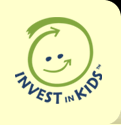The development of language begins at birth, but the ability to understand and use language to speak develops over the first three years of life. Babies learn to talk by listening to others around them, then imitating the sounds. If they can't hear other people or themselves, they will rarely develop speech. One in ten children develops a hearing problem at some time. Hearing impairment can occur in one or both ears, and parents are often the first to suspect a hearing problem. By age five, the majority of children acquire most of their native language. Newborn babies are already communicating. Their hearing is well developed and they are attuned to their mother's voice. Although she does not understand words yet, a baby responds to a tone of voice and facial expressions. By two to three months, mothers have learned to differentiate their baby's sounds and can, for example, tell from their baby's cry whether he is tired or hungry. From approximately three to eight months, babies begin to use language deliberately. They coo, chuckle, gurgle, laugh and babble. Gaze, facial expression, vocal tone, responding and being responded to are the features of their communication. By 8 to 15 months, babies have learned to get your attention, and to direct it, and to persist if their efforts are not successful. By 12 to 24 months, these patterns of language development are well established. Children build a vocabulary of approximately 50 words by the time they are two years old. Their vocabulary will include the names of people and objects they are most familiar with, as well as action words, such as "up" and "eat." Children will now understand words, objects and actions when they are used in familiar situations. They will understand simple directions such as "Go get your socks." Between two to three years of age children are putting words together to form sentences. They will begin with two-word sentences. The number of single words children understand increases rapidly during this time, and children begin to put words and routines together. From three to five years of age, children's vocabularies and sentence lengths rapidly expand. Vocabulary will grow to over 2,000 words, and sentences may be eight or more words in length. Usually, the longer the sentence the more complex it is.
|
